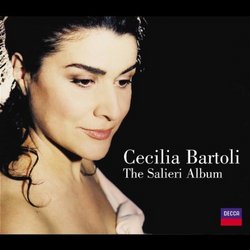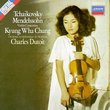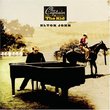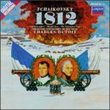| All Artists: Antonio Salieri, Adam Fishcer, Cecilia Bartoli Title: Cecilia Bartoli - The Salieri Album Members Wishing: 0 Total Copies: 1 Label: Decca Release Date: 9/30/2003 Genre: Classical Style: Opera & Classical Vocal Number of Discs: 1 SwapaCD Credits: 1 UPC: 028947510024 |
Search - Antonio Salieri, Adam Fishcer, Cecilia Bartoli :: Cecilia Bartoli - The Salieri Album
 | Antonio Salieri, Adam Fishcer, Cecilia Bartoli Cecilia Bartoli - The Salieri Album Genre: Classical
Antonio Salieri is, unfortunately, best known as Mozart's great Viennese rival. Some of his work has appeared on recordings, and he was clearly an interesting composer of well-crafted, entertaining music. But now that a si... more » ![header=[] body=[This CD is available to be requested as disc only.]](/images/attributes/disc.png?v=15401716) ![header=[] body=[This CD is available to be requested with the disc and back insert.]](/images/attributes/disc_back.png?v=15401716) ![header=[] body=[This CD is available to be requested with the disc and front insert.]](/images/attributes/disc_front.png?v=15401716) ![header=[] body=[This CD is available to be requested with the disc, front and back inserts.]](/images/attributes/disc_front_back.png?v=15401716) |
Larger Image |
CD DetailsSynopsis
Amazon.com Antonio Salieri is, unfortunately, best known as Mozart's great Viennese rival. Some of his work has appeared on recordings, and he was clearly an interesting composer of well-crafted, entertaining music. But now that a singer with the stature and prodigious gifts of Cecilia Bartoli has undertaken an entire CD of his opera arias, he may just become a quasi-household name. Here he proves himself a composer who wrote for virtuosos; Bartoli is nothing if not a vituoso. And, indeed, this CD opens with an impressive bang: An aria from La secchia rapita features a wild vocal line complete with wild coloratura, huge leaps, a range from low G to high D flat (Bartoli flirts more and more with the soprano range while using her chest register even more forcefully!), and vast dynamic changes accompanied by a full orchestra augmented with grand, martial trumpets. Other arias--one from Palmira, Regina di Persia, for example--are more introspective and are spun out with a graceful, seamless legato and seemingly endless pianissimo. Everything one loves about Bartoli is here: the intensity, absolute fluidity in execution, breath control, glorious trill, the ability to whisper or holler, and an identification with the character she's portraying which makes the situation credible and involving for the listener. At the same time, we can't overlook a tendency to overstatement and exaggeration and a breathiness to some of the delivery which can be an annoying mannerism. But where else can one get such excitement and commitment coupled with an irresistible charm in a singer so clearly at her peak? Most/all of the arias and operas here are virtually unknown; this CD whets our appetites for more Salieri. The accompaniments are as superbly thought-out and played as one would hope for--the wacky pizzicato strings and solo wind and brass lines in an aria from La Cifra, for instance, will delight. Bartoli fans and fans of great singing should not wait another moment before ordering this. --Robert Levine Similarly Requested CDs
|
CD ReviewsThe Importance of Cecilia Bartoli Eric Bergerud | Albany, CA USA | 03/05/2004 (5 out of 5 stars) "Cecilia Bartoli is a genius and this is a great album. Buy it. End of review. However, let's put Ms. Bartoli in a little perspective. I'll let others wax eloquent on her voice (or find fault for reasons beyond my comprehension). However, I would like to propose that Ms. Bartoli may be the most important performer of her generation because of the potential impact she is having or may have on the repertoire itself. For a little perspective, recall that after 1945 "bel canto" opera, with the exception of a handful of works, had disappeared from the stage outside of Italy. Along come Maria Calas, Joan Sutherland and Beverly Sills and by the 1960's there are dozens of recordings of operas by Rossini, Donizetti, Bellini and even Cherubini (MEDEA is a genuinely great work). Cecilia Bartoli, with a little luck, will precipitate a rediscovery of what I am convinced is pure gold in the field of early classical and baroque opera. Between 1640-1770 opera grew steadily in popularity. Many hundreds were written to please the eager patrons, from a surprisingly broad range of social classes, of the steadily growing number of opera houses that began to clog the continent. (Some opera even made it to the English Colonies in North America well before the little disagreement with the Crown.) If you read a standard history (Fred Plotkin's simple work is a good example) it will tell the following story. Composers of the baroque era, eager to please the unwashed peons and mindless aristocrats buying opera tickets, chose libretti, usually loosely inspired by classical mythology, of zero literary merit. The words were simple devices to get from one aria, duet or chorus to another. Mind you, this practice was, in the eyes of later critics, a bad bad thing. Sitting around and listening to beautiful (or perhaps merely pretty) songs was, I guess, a trivial pastime. The arch-villain in the piece was Pietro Metastasio an Italian poet and author of dozens of libretti. Frivolity by Metastasio and others led to the exhaustion of the art form. Then, like the cavalry, comes Gluck and his "reform" operas that attempted to balance the story with the music creating something profound. With a few bumps along the road (like Mozart or the bel canto masters who all put the music clearly on top of the musical heap) a new art develops and triumphs with mature Verdi and, especially, Wagner. If we accept the pundits' story, the road to heaven continues through Bizet (cigarette factories instead of Troy: a giant leap for mankind no doubt), Puccini, Britten and, heavens, pretty soon we have the pleasure of listening to NIXON IN CHINA. Cecilia Bartoli sells CDs in mega-numbers in "classical terms" and has developed a fanatic following which is unlike that of any other singer. And how has she done it? She started by showing an uncanny skill for several roles in Mozart and Rossini. Well established as a rising star, one would think she would have moved more solidly into heart of opera-land. But Bartoli didn't know the script. Instead, she marched steadily backward, into the vapid artistic swamp of baroque opera. She hits the charts with an album of Gluck works - many from his decadent Metastasio period. The music's great. My books assure me that whatever his orchestral skills, Vivaldi's operas weren't worth the time of day. Cecilia Bartoli makes a spectacular Vivaldi album. My books assure me that whatever his orchestral skills, Haydn's opera's weren't worth the time of day (Metastasio you know). Cecilia Bartoli makes a spectacular Haydn album. To really show what she thought of a hundred years of musical criticism, Ms. Bartoli recorded a gorgeous album (THE IMPATIENT LOVER) that consists of songs composed by Beethoven, Schubert, Haydn and Mozart employing lyrics by - get this - Pietro Metastasio. So it shouldn't surprise anyone that she now chooses to bring Salieri, the Metastasio of his era, to the top of the classical charts. I think Cecilia Bartoli is trying to tell the world's opera lovers that there exists a gold mine of unexplored musical beauty sitting right in the back yard. All that has to be done is to record it. Ms. Bartoli has thrown her big hat into the ring. Her most recent work is a DVD of a performance of NINA by Giovanni Paisiello, another "pre-reform" composer who committed the crime of not being Mozart. I don't have my clutches on it yet, but the buzz is that it's great. All music lovers must want the repertoire to expand. I would like to think that modern composers can rediscover beauty and hope it will happen. (It does sometimes.) Until then, let's hope that opera companies bring to life a century's worth of music derided and discarded by late 19th Century critics. No doubt there are duds out there. Perhaps there are works that could be "staged" rather than performed (dump the recitative if it really is inane). And perhaps there are some really nice works out there ready to go. If Maria Callas was able to rescue Rossini and his immediate successors from a century of deaf pundits, we may hope that Cecilia Bartoli will do the same for a legion of Italian composers that entranced Europe for over a century. If she does so, or helps the process along, lovers of music will be in her debt." Salieri Operas Unearthed....Bartoli Is Sensational Rudy Avila | 10/18/2003 (5 out of 5 stars) "Cecilia Bartoli is among the most recognizable and artistic opera singers of today's opera world. She hails from Italy, home of opera, where she launched her operatic career, singing the mezzo-soprano starring roles of Rossini operas- L'Italiana In Algieri, La Turca In Italia, La Cenerentola, The Barber Of Seville, etc, and has also popularized such trouser roles as Cherubino in Mozart's Le Nozze Di Figaro. Her role in Mozart's Cosi Fan Tutte is also exceptional. Her mezzo soprano voice is not as deep as let's say Marilyn Horne, who can almost sound like a contralto, but Cecilia's voice has beautiful soprano qualities and she interpolates dazzling coloratura technique whenever necessary. Straying from her usual repertoire, at least as far as composer, Cecilia Bartoli sings arias from Salieri operas in this compilation album. She is brilliant. Also, the music of Salieri and his operas stand out. We can now appreciate him more thoroughly as a mature, gifted composer who just happened to be eclipsed by Mozart.Antonio Salieri, contrary to popular belief, rumors and his portrayal in the 1984 film "Amadeus", was not a jealous, scheming, villainous rival composer who was bent on crushing Mozart and who caused his death. Salieri was actually much more appreciated and loved in his time than the "modern" Mozart, whose newer style of music as well as liberal "star" personality was never well received in conservative Vienna. At this time, in Vienna, composers were under the patronage of monarchs and nobility. Mozart himself was in the service of the Archbishop of Salzburg for many years. To defy authority by making one's self the celebrity was detrimental to a composer's career and could cause his ruin. Salieri, on the other hand, always catered to popular tastes in Vienna and would honor the Emperor without making himself a celebrity. He was financially more secure than Mozart and lived in luxury. He had no reason to even be jealous of the struggling Mozart. If he was, he kept it to himself and did not act on hi jealousy and he certainly did not scheme to bring about Mozart's death. In this compilation album, Cecilia Bartoli brings out the beauty elaborate lyricism of Salieri's operas. He wrote gorgeous vocal music for the female soprano voice. Perhaps some of these ornate melodies were written for the reigning soprano of the time- Catarina Cavallieri, who was Salieri's mistress. Cecilia Bartoli is leaping out, sort to speak, of her usual lower registers and taking on dramataic, fierce attacks that are found in the "chest" voice of a soprano. And she does so without sacrificing her "head" voice, able to spin out roulades and coloratura passages of lightning speed. Among the finest works in this album are arias from Salieri's "Pamira, Regina De Persia" and "Armida". It is disappointing, at least for me, that there is no soprano aria from Salieri's opera "Axur, Re De Ormus". "Axur" was considered the greatest opera ever written, a term used by Emperor Joseph himself when he attended a performance. Cecilia Bartoli would have pleased Salieri himself and would have more than likely surpassed Catarina Cavalieri, with her charm, good looks, ease of vocals and gifted opera talent."
|

 Track Listings (13) - Disc #1
Track Listings (13) - Disc #1



![One Man Band [CD + DVD]](https://nationalbookswap.com/cd//m/42/4442/1214442.jpg)




